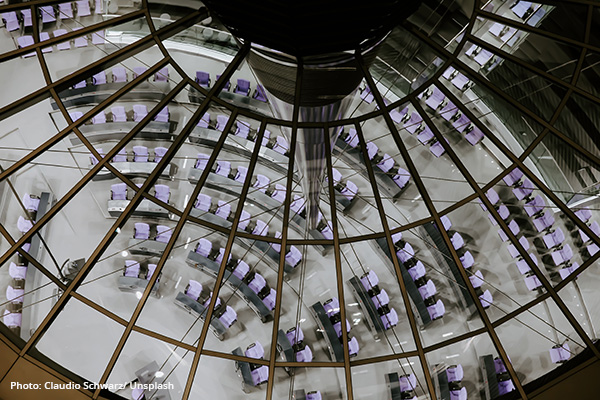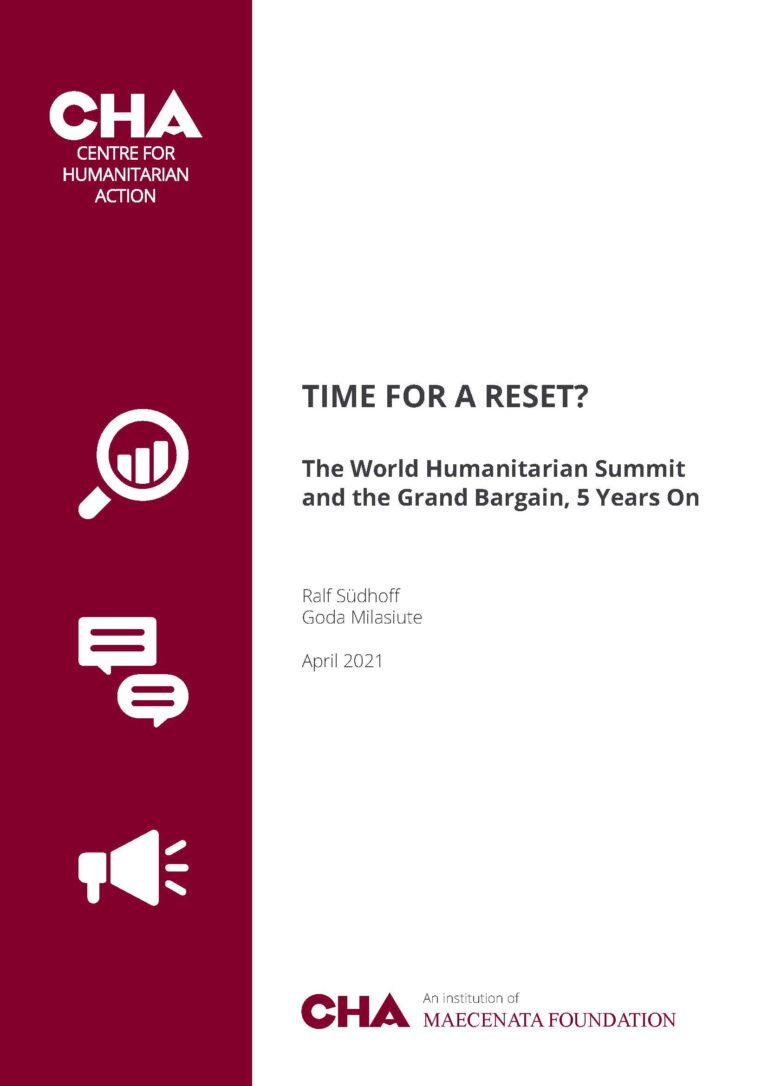| Date: | 31.03.2022 |
| Time: | 14:00 - 15:30 |
| Location: | online |
Rarely before has foreign policy been so central to the launch of a new German government as it has been since the war of aggression on Ukraine began, bringing with it major new challenges.
In its coalition agreement, the Federal Government promised a value-oriented and coherent foreign policy and announced that Germany’s humanitarian engagement would be consolidated and expanded – in view of ongoing crises in countries such as Afghanistan, Syria, Yemen or the Sahel, where particularily in Mali the sense and future of the German Bundeswehr mission and “networked approaches” are being debated. The German government intends to initiate humanitarian reforms as well as a more humane German and European refugee policy.
After 100 days and in light of the first draft budget of the new federal government, we would like to discuss the first measures of the so-called traffic light coalition with three exceptional experts and raise questions about actual plans of the federal government with regard to a climate-oriented, locally anchored and flexible German humanitarian action.
Panel:
Luise Amtsberg
new Federal Government Commissioner for Human Rights Policy and Humanitarian Assistance at the German Federal Foreign Office
Anja Osterhaus
Director Programmes Oxfam Germany e.V.
Katharina Lumpp
UNHCR Representative in Germany
Moderation:
Sonja Hövelmann & Ralf Südhoff
Centre for Humanitarian Action e.V.
The discussion was in German, took place virtually via Zoom and was recorded:
00:01 Welcome and review of 100 days of German foreign policy by Ralf Südhoff
06:55 First Audience Poll – “I rate the Federal Government’s 100-day performance in the field of humanitarian aid…”
08:18 Luise Amtsberg – Review of the new German government’s foreign policy
18:57 Anja Osterhaus – Oxfam’s view of the first 100 days of the German government
26:51 Katharina Lumpp – UNHCR’s perspective on the review of the first 100 days of the German government
35:10 Second audience poll – “Did the German government present very concrete plans for a more humane refugee and migration policy?”
36:59 Luise Amtsberg – Response to demands and expectations by Oxfam and UNHCR in the areas of flexibilisation, localisation, flight and migration
45:59 Anja Osterhaus – Demands and proposals to donor institutions in the field of localisation
49:10 Katharina Lumpp – Demands to the German Government in the areas of anticipatory aid and refugee and migration policy
56:59 Luise Amtsberg – Flexible funding and plans of the German government in the field of migration policy
1:03:40 Questions from the audience, presented by Sonja Hövelmann
1:05:45 Luise Amtsberg – Global hunger as a result of Russia’s war against Ukraine; anticipatory aid in the G7 Presidency
1:07:24 Anja Osterhaus – Competition among humanitarian actors
1:11:17 Katharina Lumpp – Role of the UN in Ukraine’s neighbouring states; assessment of instrumentalisation of humanitarian corridors
1:19:26 Anja Osterhaus – Assessment of progress in the area of Triple Nexus
1:20:35 Luise Amtsberg – Feminist Foreign Policy and Foreign Climate Policy against the background of decreasing funds; gender budgeting and individual plans in the federal budget
1:25:09 Closing audience poll – “Where do I need more transparency on what the new federal government’s humanitarian aid is about?”
1:26:46 Closing statements by the panellists; thanks and goodbye by Sonja Hövelmann






